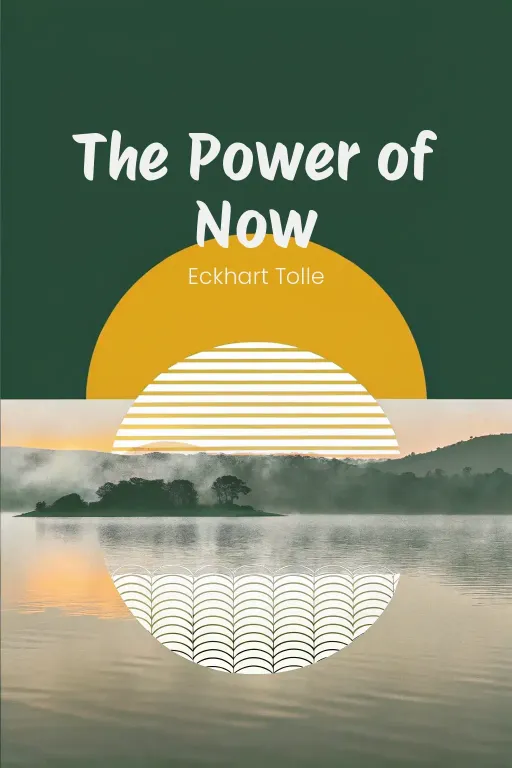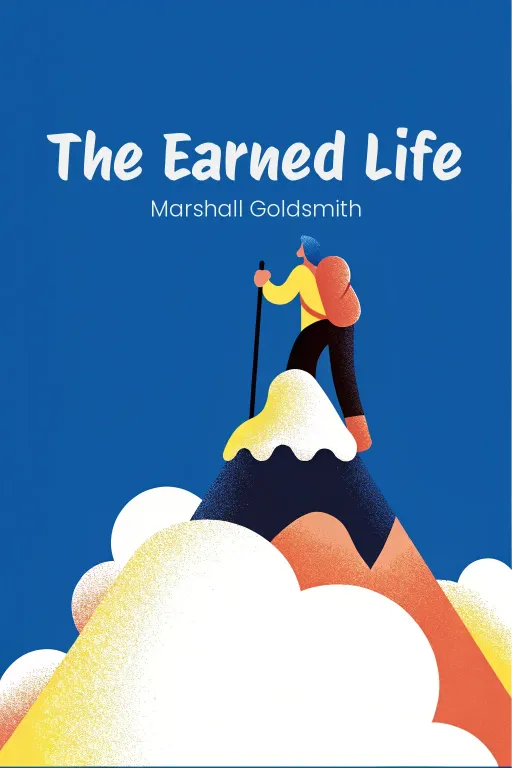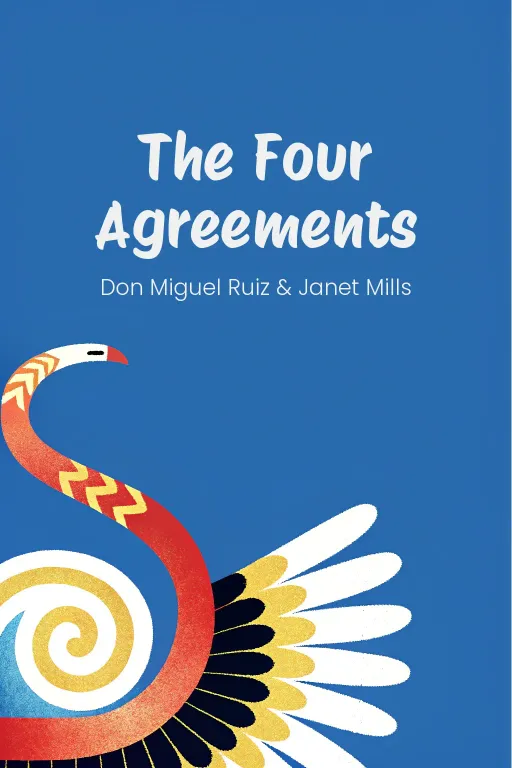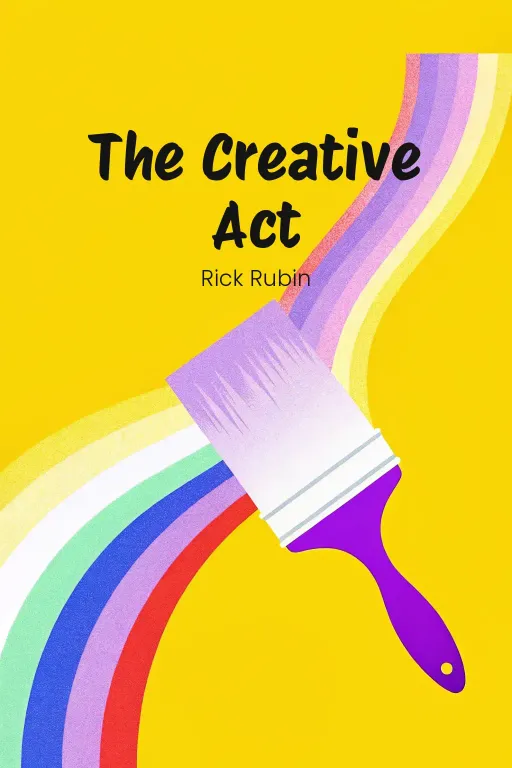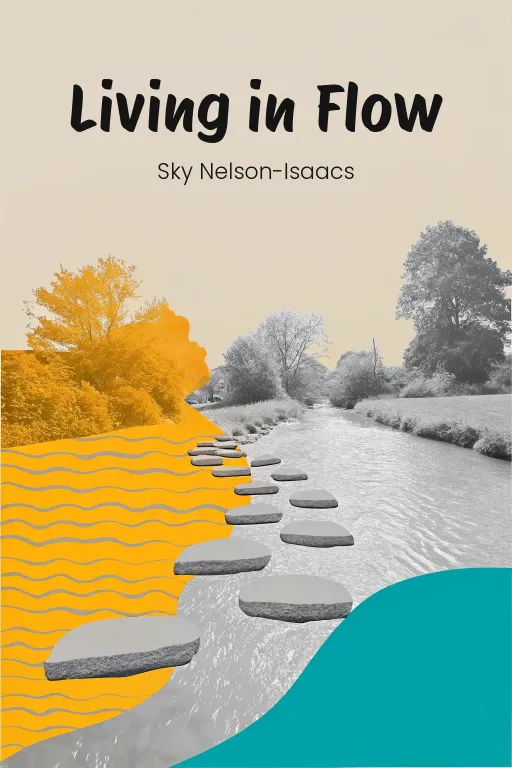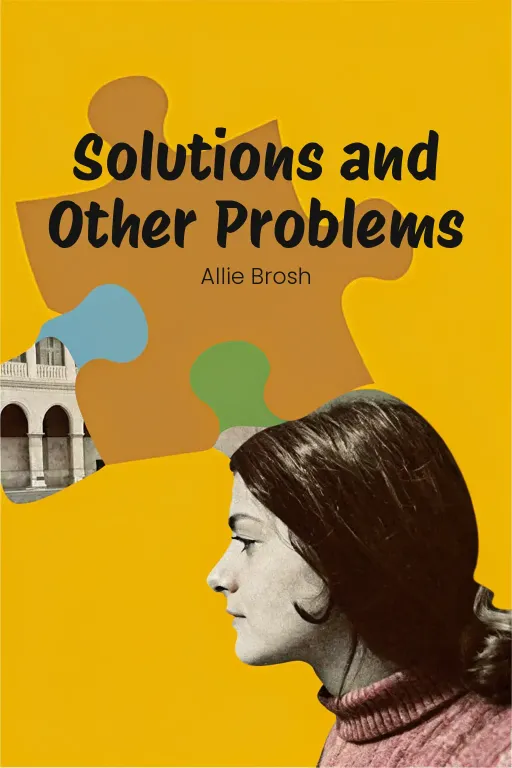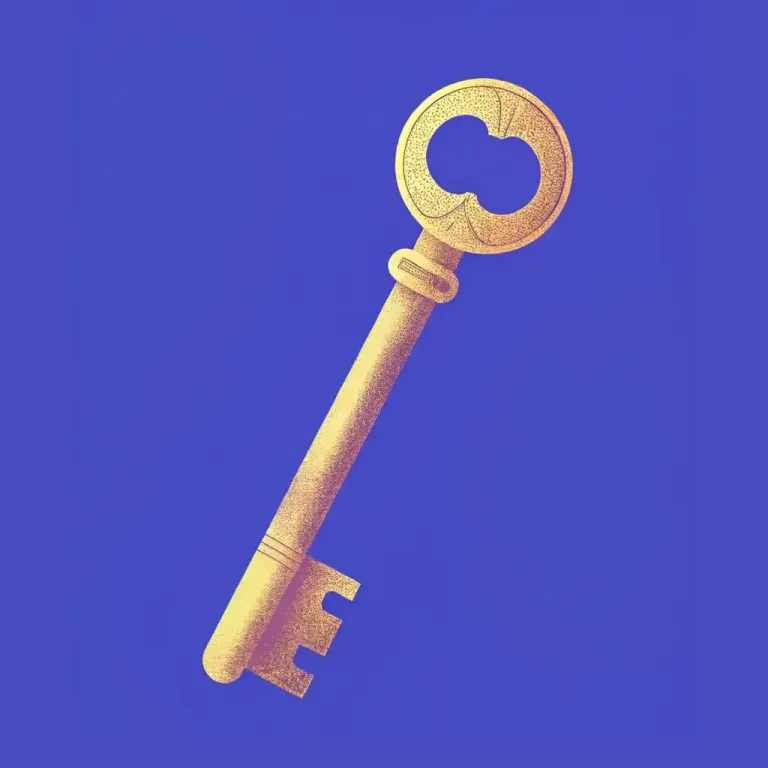
Design Your Dream Life, Today!
Podcast by Beta You with Alex and Michelle
Lose Regret, Choose Fulfillment
Design Your Dream Life, Today!
Part 1
Alex: Hey everyone, welcome! Today we’re diving into a question that’s pretty fundamental: Are we really “earning” our lives, or are we just letting them slip through our fingers? Michelle: Whoa, Alex, straight in with the heavy stuff! I like it. It's a question we all grapple with, whether we're chasing some big dream, stuck in the daily grind, or just trying to figure out what actually matters in the end. Alex: Exactly! And that’s where Marshall Goldsmith's book, The Earned Life, comes in. It’s really a guide to connecting our everyday actions with what we truly want out of life. Goldsmith shows us how things like mindfulness, being intentional, and really looking at ourselves can help us move from regret to actually feeling fulfilled. He makes the point that a meaningful life isn't some accident – it's something we have to actively build. Michelle: Okay, but let's be real here, this isn’t about being perfect or suddenly having all the answers, right? It's about putting in the effort to make sure what you do lines up with what you believe. And, you know, this guy's coached some serious leaders. So, yeah, he's seen a thing or two. Alex: Definitely. And in today's podcast, we're going to break down this idea into three actionable steps. First, we'll explore what it means to be fully present; think of it like a master craftsman really focused on every detail. Then, we’ll see how subtle social pressures and our own habits can trap us in what Goldsmith calls “invisible cages.” And finally, we'll get into his toolkit—a system for turning those big aspirations into actual, achievable actions. Michelle: So, whether you're searching for some clarity, trying to kick some bad habits, or just trying to figure out what "earning your life" even means, this episode will give you some concrete starting points. Ready to jump in, Alex? Alex: Absolutely, let's do it!
The Every Breath Paradigm
Part 2
Alex: So, picking up where we left off, let’s dive into the philosophical heart of Goldsmith’s work: the Every Breath Paradigm. It’s a really compelling framework for redefining fulfillment by just embracing the present moment. Basically, it’s about understanding impermanence and practicing mindfulness—recognizing that each breath is a fresh opportunity to shape who we are. Michelle: Okay, but, Alex, doesn’t “every breath is a new me” sound a little… idealistic? I mean, how does this concept translate to real life, where we’re not just meditating but also, you know, dealing with the daily grind? Alex: That’s a valid point, Michelle. Goldsmith actually argues that a major pitfall is what he calls the “Great Western Disease”—this ingrained belief that happiness is always just around the corner. The classic, "I’ll be happy when I get that promotion, buy that house, or finally achieve X." But the problem is, once we reach those goals, the satisfaction is so short-lived, and then we're just chasing the next thing. Michelle: Right, the good old hedonic treadmill. We’ve all been there, haven’t we? You achieve something you’ve been striving for, and instead of enjoying it, you're immediately focused on what's next. The better job title, the bigger paycheck, the next achievement. It’s a never-ending cycle, honestly. Alex: Exactly! Goldsmith calls it an “unending theater of chasing badges of success”—where we're constantly consuming but never really feeling fulfilled. The Every Breath Paradigm completely inverts that. Instead of always chasing these future milestones, it encourages us to focus on right now, this exact moment, and consider: Are my core values and long-term aspirations aligned today? Michelle: Okay, that’s the theory, but how do you actually do that? Most of us are naturally wired to look ahead, or to ruminate on past mistakes. Isn’t retraining our brains to be fully present a bit… unnatural? Alex: It's definitely not an instant fix. Goldsmith emphasizes mindfulness as the key, through practices like mindful breathing or guided meditation. It’s about intentionally stepping off that treadmill of “what’s next” and simply being. Think of each breath as a mini-reset. And it's about asking yourself, "Am I the person I aspire to be in this moment?" Michelle: I can get on board with that. So, it’s kind of like micro-corrections, tiny resets that bring you back into focus. But what about the past? Those regrets, failures, that gnawing sense of "what if"—they're hard to shake off, right? Alex: Absolutely, but Goldsmith offers a really insightful reframing technique —distinguishing between your past self and present self. He shares a story about an executive named Mike, who was burdened by guilt over past actions, especially with his family. The turning point for Mike was when he said to his wife, "You’re blaming me for the actions of someone who doesn’t exist anymore.” That recognition—that we’re not bound to who we once were—can be incredibly freeing, actually. Michelle: Wow, talk about shifting your perspective. So instead of struggling with your past self, you acknowledge, "That was a different person making those decisions, not me today." It’s like emotionally decluttering—shedding the unnecessary guilt or regret. Alex: Precisely. And here’s the really transformative part: Mike’s realization didn’t just liberate him, it repaired his relationship with his wife. By letting go of his past baggage, he became fully present in his family relationships. That’s the power of impermanence: acknowledging that identities, behaviors, everything is in constant flux. Michelle: But impermanence isn’t just about positive change, is it? It works both ways, I mean, doesn’t the idea that “nothing lasts forever” feel a little… scary? Alex: I see your point, Michelle, but really, what impermanence offers us is resilience. If nothing is permanent, that includes our failures and setbacks. Goldsmith refers to this flexibility as “the healing power of the Every Breath Paradigm.” It prompts us to ask ourselves: If everything is temporary—even our regrets and missteps—how can we “really” embrace this present moment? Michelle: Okay, let me try to synthesize this. The Every Breath Paradigm boils down to a few core principles. First: Stop postponing happiness to some imaginary future. Second: Get rid of the baggage from the past by viewing your identity as something that is ever evolving, not something that is static. And, third: Commit to using things like mindfulness and reflection to stay present. Alex: Exactly. And to put these ideas into practice, Goldsmith gives us some simple yet powerful tools. Like, reframing regret as a catalyst for growth instead of a source of paralysis. Even something as simple as asking yourself on a daily basis, “Am I behaving the way I want to be right now?” Small steps, but profound ones. Michelle: Hmm, it's almost deceptively simple. The key to fulfillment has been right here with us all along—literally, in our breath. Alex: That's what makes it so powerful, Michelle. When we stop chasing the future or clinging to the past, we create the space to truly live our lives, one breath, one moment at a time.
Barriers to Creating Your Own Life
Part 3
Alex: Okay, Michelle, so we're talking about being present, right? But what stops us? Well, Goldsmith points to five big things that get in our way. He calls them inertia, societal programming, obligations, vicarious living, and a failure of imagination. They're not just little bumps in the road, they're like, major roadblocks that keep us stuck doing what we're already doing. Michelle: Right, so basically, even if we know we want to live more intentionally, these are the reasons why we…don't. Let's start with inertia, though. It's kind of like... Newton's first law, right? An object in motion stays in motion, and an object at rest stays at rest. So, how do we overcome that mental laziness? Alex: You're not wrong! Inertia is basically sticking with what you know, even if it's not great. It's comfort disguised as fear, you know? Goldsmith gives this example of someone just going through the motions every day, same routine, same resentments, dreaming of change but never actually doing anything. That's inertia holding them hostage. Michelle: It’s like, you know, getting so used to the wallpaper that you don't even notice you hate the color anymore. So, what’s the fix? Alex: Start small! Goldsmith says tweak your daily routine in tiny ways, on purpose. Dedicate just ten minutes to something new, like journaling or thinking about your big goals. It's about jumpstarting yourself out of that rut. Michelle: Okay, baby steps. I can get behind that. Now, what about societal programming? Is that just a fancy way of saying we do what we’re told? Alex: Pretty much. We get put into these boxes from childhood, right? "The smart one," "the athlete," "the rebel." And those labels can shape our whole lives, our jobs, relationships, even what we believe about ourselves. Goldsmith’s point is, we usually don't even stop to question them! Michelle: Yeah, I know people like that. They're "the provider," you know? It’s like, their whole identity is wrapped up in that, even if it’s killing them. Alex: Exactly! Goldsmith talks about this guy who was raised to be “the protector”, and he couldn't even think about his own dreams because it felt selfish. He had to ask himself, "Do my needs count less?" That's when he realized he could rewrite his story. Michelle: So, it's about questioning everything, huh? Asking, "Wait, is this my story, or someone else's idea of what my story should be?" Alex: Exactly! It's deprogramming yourself, figuring out what you value, not what society expects. Michelle: Okay, makes sense. Now, let's talk about obligations. I mean, we all have them, right? Family, work, bills...you can't just ditch all that. Alex: No, nobody's saying ditch your responsibilities! But obligations become a problem when they take up all your energy, so there's nothing left for what you want to do. Goldsmith talks about a mom who dreams of starting her own business but is too overwhelmed with work and kids. Michelle: Ah, that classic excuse. "Someday, when the kids are older..." and then poof, ten years go by. Alex: Exactly. Goldsmith says, get creative! This mom could break her big goal into smaller steps, or even involve her family in her business. It's about finding a balance, not letting obligations completely squash your dreams. Michelle: So, not either/or, but both/and. I like that. Now, what about vicarious living? I'm guessing that's a fancy way of saying "spending too much time on social media"? Alex: Guilty! It's a major distraction, because we are constantly comparing ourselves to other people's highlight reels. Goldsmith talks about this author who spends hours on Instagram envying other successful writers, instead of actually writing herself! Michelle: Right! You're looking for "inspiration," and you end up feeling totally inadequate. It's like eating junk food for your soul. Alex: Totally, it's empty calories. Goldsmith says, prioritize creating over consuming. The author needs to put down her phone and write every day. The rule? Create before you consume. Michelle: Solid advice. Build your own life instead of just watching everyone else's. Okay, last one: failure of imagination. That sounds kind of… harsh. Alex: It’s sneaky because it's not just a lack of creativity; it's not seeing possibilities beyond what you already know. Goldsmith’s example is Jeff, a factory worker who couldn't imagine doing anything else, until the factory closed. He felt totally lost, but then he learned jewelry-making and found out his dexterity was perfect for it. Michelle: So, it's about seeing how your skills can transfer. It's not a total reinvention, but like… finding the adjacent career. Alex: Exactly! Jeff had the skills all along; he just needed a new perspective. Expand your imagination by talking to new people, reading about new things, trying new hobbies. Michelle: Okay, Alex, let me recap. Inertia keeps us stuck. Societal programming tells us who we should be. Obligations drain our energy. Vicarious living makes us spectators. And a failure of imagination limits our potential. Did I get that right? Alex: Nailed it. And Goldsmith’s solutions are all about small, intentional actions. Journaling to beat inertia, questioning societal labels, creating before you consume... it's about breaking down those barriers, little by little. Michelle: It's actually pretty empowering, Alex. Once you see the chains, you can start breaking them, right? So, where do we even begin?
The Earning Checklist
Part 4
Alex: So, after identifying those barriers, we move into the tools for making decisions and managing risk. Michelle: I'll admit, Alex, this is the part where I really started paying attention. Goldsmith’s Earning Checklist, I mean, who doesn't like a good framework? It makes these big concepts feel, well, doable. Alex: Exactly! The Earning Checklist is a structured way to make thoughtful decisions, connecting your individual work to larger systems, you know, accountability and growth. It's got six parts: motivation, ability, understanding, confidence, support, and marketplace. They're all important, and they all work together. It’s a whole system for living a purposeful life. Michelle: Okay, let's kick off with motivation, the… spark plug, right? Everyone talks about motivation like it's this endless, magical fuel, but come on, it fades. Some days you're totally in, other days you're watching TV instead of doing what you need to do. Alex: That’s why Goldsmith emphasizes clarity. It’s not just “feeling” motivated; it's about having clear, achievable goals. Think about a marathon runner. They don’t just wake up one day and run 26 miles. Every early jog, every good thing they eat, it's all because they want to cross that finish line. Michelle: So, you’re saying these huge goals need to be broken down into easy, daily actions to keep the fire burning? Alex: Yep. Without those steps, motivation just becomes vague intentions. Remember that Ted Kennedy example in the book. His political goals weren't clear, and it showed in his campaigns. If your motivation isn’t tied to clear goals, it just doesn’t lead to action. Michelle: So, motivation is more than just being excited, it’s about having a roadmap for what to do with that excitement. Alex: Exactly! And connecting with your core values can make that motivation even stronger. Ask yourself, "What excites me?" or "What impact do I want to make?" That helps you focus your energy on things that matter. Michelle: Alright, so motivation gets things started. But what about ability? Because having the drive but not the skills—that gets you nowhere, right? Alex: Absolutely. Ability, in this context, is about knowing your strengths and weaknesses. Goldsmith talks about oncology specialists. They're technically skilled, but they also have emotional resilience to deal with tough situations. It's not just their hard skills, it's how they adapt when things don't go as planned. Michelle: Right, it's not just being good at something, it's knowing how and when to use your skills, and how they fit with the problems that you encountered. Alex: Exactly. Goldsmith suggests doing self-assessments. Ask yourself, "What am I really good at?" and "How can I use those skills?" This helps you match your skills to what you need to do, or even find hidden talents. Michelle: And if you're not as skilled as you'd like to be, I guess practice is the answer here? Alex: Exactly. Ability isn't just something you're born with, it's developed over time. Find the place where your skills meet the needs of the market or your team. Which brings us to understanding. Michelle: Okay, so understanding is about joining the dots; seeing how your ability fits into the bigger picture, right? Alex: Right. Goldsmith says understanding is the framework that connects what you want to do with what's possible, and it helps you make good decisions. It's not just technical skills, but also things like self-awareness and empathy. He tells the story about a presentation that bombed because the speaker just didn’t understand the audience. Michelle: That’s so true. People think understanding is just about knowing your stuff, but it's also about reading the room and changing course when necessary. Alex: Exactly. That ability to adapt is key. Goldsmith talks about having empathy. If you're self-aware and can relate to others, you can connect your skills with the opportunities around you. Michelle: And I think understanding naturally leads to confidence. If you know what you're doing, and why, you're more likely to believe in yourself, especially when things get tough. Am I right? Alex: Totally! Confidence builds on understanding and reinforces your self-belief, but it doesn’t just appear. It's built over time and from small successes. Goldsmith shares a story of a marathon runner using every practice run to prove on race day he would not fail. Even setbacks became lessons learned, not reasons to doubt. Michelle: So confidence isn’t about acting like you can't fail, it’s knowing that even if you do stumble, you can keep moving forward. Alex: Exactly. Also, celebrating those small wins helps. You don't have to wait until the end to acknowledge your progress. Every little thing you do shows that you’re capable and on the right path. Michelle: Alright, motivation, ability, understanding, confidence, seem to focus on the individual so far. Then we go to support, kind of feel like it’s a team sport. Alex: That’s what makes support so important. Goldsmith points out that most success stories involve mentorship, encouragement, and collaboration. He shares the story about a young lawyer whose career was changed, all because of a senior partner's mentorship. The mentor also advocated for him. The collective efforts lifted the individual to potential. Michelle: It's a good reminder that asking for help isn't a weakness—it's strategic, and the more you're open to it, the better you're going to face challenges. Alex: Exactly. A supportive network, both professionally and personally, gives you opportunities to grow and a safety net when things go wrong. Success comes from shared effort. Michelle: Which leads us to marketplace. My favorite. It's where everything meets reality. Alex: The marketplace is about matching your goals with the world's needs. Goldsmith mentions an artisan whose art was amazing. They didn't have buyers, while engineers are always in demand. Michelle: It's not just about having vision and skill, it’s about finding an audience that values it. Alex: Exactly! You need to stay up on external trends and be ready to change course. Find where your passion meets what's needed. Michelle: Got it. So, the Earning Checklist is practical. Motivation starts things, ability is your strengths, understanding links those strengths to reality, confidence pushes you forward, support builds momentum, and marketplace keeps it real. Alex: Exactly! And each part reinforces the others—strengthen one, and the whole system gets stronger. It’s a plan for intentional, meaningful action that leads to growth!
Conclusion
Part 5
Alex: Okay, let’s tie everything together. We’ve looked at Goldsmith’s approach to building a fulfilling life through three core concepts. First, the Every Breath Paradigm – it’s all about being present, right? Recognizing that each moment is a fresh chance to align with our true selves. Second, we identified those roadblocks—inertia, societal expectations, living through others—that keep us stuck. And finally, the Earning Checklist gave us this actionable structure for turning our dreams into reality, for making intentional progress. Michelle: Right, what struck me was the emphasis on clarity and, more importantly, on action. You can't just wish for a meaningful life, can you? Goldsmith's method is about actively putting in the work. Questioning our limitations, connecting our actions to our core values, and making conscious day-to-day decisions. It's like he’s telling us that fulfillment isn't a passive thing, it’s something we actively create. Alex: Precisely. And the key takeaway for our listeners is this: What if you viewed every single breath as a chance to recalibrate, to ask yourself: "Am I living in accordance with my values? Am I actively earning the life I desire?" It's not about these grand gestures or perfect blueprints. It's about the cumulative effect of small, meaningful actions. Michelle: Exactly, and that's the “real” challenge, isn't it? To quit waiting for the "ideal moment" and to begin making choices here and now. So, here’s a call to action: What is one thing, just one, that you can do today to bridge the gap between your current reality and the life you aspire to create? Alex: And remember, progress isn’t always a straight line, and setbacks don’t define you. They’re part of the journey. Every breath, every moment, is a fresh start. Now, it's up to you to make it significant. Michelle: Nicely put, Alex. Okay, listeners -- that wraps it up for today. Go ahead, take that initial step. Until next time, keep exploring those big questions, and we'll catch you on the next one.
